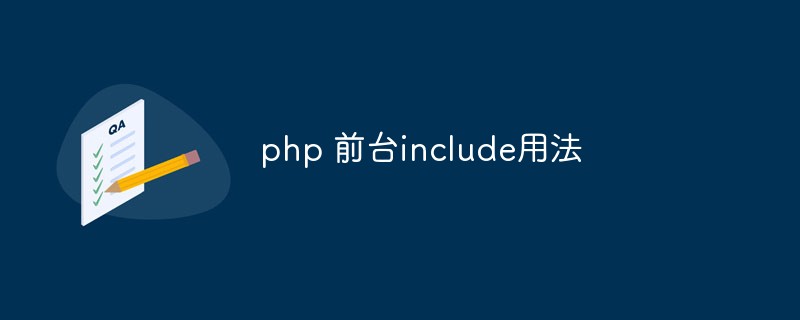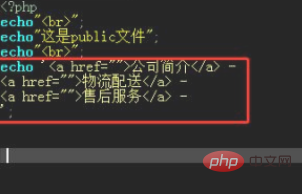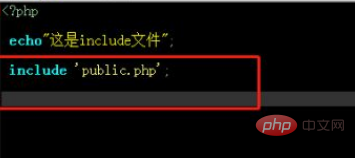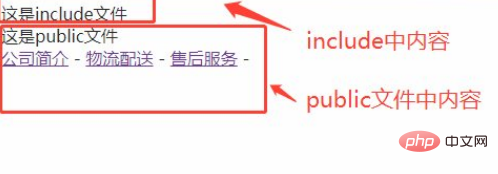Home >Backend Development >PHP Problem >What is the usage of include in php
What is the usage of include in php
- WBOYWBOYWBOYWBOYWBOYWBOYWBOYWBOYWBOYWBOYWBOYWBOYWBOriginal
- 2022-02-22 10:46:186471browse
In PHP, the include statement is used to get all the text, code, and tags present in the specified file and copy them to the file using the statement. Before the server executes, the contents of the PHP file are inserted into another PHP files.

The operating environment of this article: Windows 10 system, PHP version 7.1, Dell G3 computer.
What is the usage of include in php
The include (or require) statement will get all the text/code/tags present in the specified file and copy it to the file using the include statement.
Included files are useful if you need to reference the same PHP, HTML, or text on multiple pages of your website.
PHP include and require statements
The include or require statements allow you to insert the contents of a PHP file into another PHP file (before the server executes it).
The include and require statements are identical, except for error handling:
require will generate a fatal error (E_COMPILE_ERROR) and stop the script
include only generates warnings (E_WARNING) and the script continues
So if you wish to continue execution and output results to the user even if the include file is missing, then please Use include. Otherwise, in frameworks, CMS, or complex PHP application programming, always use require to reference key files to the execution flow. This helps improve application security and integrity in the event that a critical file is accidentally lost.
Including files saves a lot of work. This means you can create standard header, footer or menu files for all pages. Then, when the header needs updating, you simply update the header include file.
Syntax
include 'filename';
or
require 'filename';
The contents of the public.php file are as follows:



PHP Video Tutorial"
The above is the detailed content of What is the usage of include in php. For more information, please follow other related articles on the PHP Chinese website!

